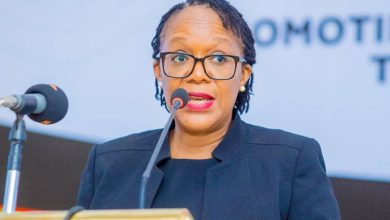Malawi can go India on electronic voting
Justice Annabel Mtalimanja and her Malawi Electoral Commission (MEC)crew might have looked at the Electoral Commission of India (ECI) with envy as arguably the world’s biggest democracy successfully conducted its polls last month.
ECI chief elections officer Ravij Kumar oversaw several phases of voting in the exercise that ran up to June 1 and saw Prime Minister Narendra Modi winning a historic third term.

For him to ensure that at least 950 million citizens enjoy the universal suffrage, he doesn’t have to suffer heartaches of funding deficits like his Malawian counterpart.
It is common to hear about election budget facing a deficit in Malawi.
Six months before the 2014 Tripartite Elections, the MEC had only received K7 billion out of the total K18 million budget.
In May 2019, former MEC chairperson Jane Ansah reported that the commission had a deficit of K7.5 billion despite government committing to provide 85 percent of the 2019 Tripartite Elections budget.
Even the court sanctioned fresh presidential election that Justice Chifundo Kachale successfully oversaw was not without challenges.
Days before the June 23 elections, MEC was facing a K10 billion deficit.
It was only a few weeks to the polls that government had released some money.
In February, MEC was lobbying Parliament to increase its elections preparatory budget from the proposed K59.7 billion to K68.8 billion to effectively undertake its assignments.
But for the ECI, funding has never been a challenge in any election cycle.
Kumar, in an interaction with visiting African media personnel in that country last December, said the commission always receives what it asks for.
“In 70 years, there has never been a case where the commission has asked for money and it has not been given,” he said.
To ensure that they register a voter turnout of 67 percent as registered in 2019 and about 65.79 percent in the just concluded elections, the commission invests in promoting the elections on electronic platforms, including social media.
MEC, on the other hand, does not have the luxury of flooding all platforms with even a mere 30 percent of the advertisement with available resources.
But holding an election for a country such as India—where close to one billion people are eligible voters and with an election conducted by at least 20 million staff— could have been a logistical nightmare if the voting was done manually as is the case with Malawi.
Kumar told the media personnel that holding elections in one of the world’s fastest growing economies is “the biggest logistical exercise ever” and of course technology is involved.
India uses electronic voting machines which make life easier as vote counting is concluded in one day and by evening, all constituencies are declared.
The technology is cheap as one machine that can be used for 15 years roughly costs $ 700.
But despite Malawi embracing technology in various facets of life, voting and ballot counting has remained a cumbersome manual event.
MEC invested billions in elections management devices (EDMs) with the ability to transmit ballot results electronically, but it uses manual transmission, something that it will rely on in the 2025 polls.
Conducting elections manually is both an expensive and laborious exercise that somehow explains why funding will never be enough.
In an interview with Nation on Sunday when MEC received a final consignment of the EDMs from China at Kamuzu International Airport in Lilongwe, commissioner Richard Chapweteka said MEC has capacity, only that Malawians are not ready for that technology.
“It is not that we cannot do that. It’s just there are always trust issues when it comes to elections. So, all we are saying is these EMDs have the capacity to manage results in terms of transmission of results. However, we find it difficult for the time being. I don’t think Malawians are ready to accept that,” Chapweteka told reporter Clement Chinoko.
He said there is hope in the foreseeable future: “Probably when the public understands that we cannot continue doing manual transmission. Maybe then we will be able to because we already have the capacity to do that.
“We don’t want to go into issues of questioning each other that you are probably trying to manipulate results through electronic transmission.”
EMDs are portable state of the art devices which can be used in voter registration, transfer of voters, inspection of the voters’ register, nomination of candidates and management of results.
MEC spokesperson Sangwani Mwafulirwa argues that adoption of technology in elections is a complicated process.
“Stakeholders always treat with suspicion any new technology that is being introduced and this is across the globe. The commission always has a tall order of selling and convincing stakeholders to accept new technology. However, in recent years, there seems to be a growing willingness and realisation of the importance of adopting new technologies among some stakeholders.
“When adopting technology, there are many factors that are considered, including costs, problems or challenges it is solving. If the technology is not solving any challenge, it won’t just be adopted for the sake of itself,” he said.
Mwafulirwa confirms that online voting and other means of electronic voting are not under consideration for 2025.
“Voting will still be manual so will be vote counting,” he said.
Political parties harbour the unknown fear of voter manipulation in the electronic voting, but as the India experience has shown, parties are challenged to test the technology; hence, approval is guaranteed. Perhaps, it is time the country initiated debate on the need to reduce the use of ballot papers when technology is becoming the lingua franca of doing business everywhere. But for how long will political parties fear manipulation?




